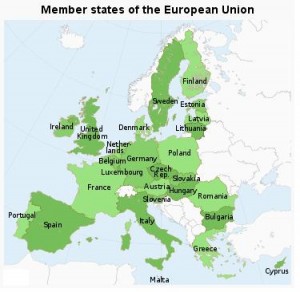Finland May Block Portugal Bailout, Official Warns
By EurActiv
There is now an even chance that Finland will block eurozone aid to Portugal, a move that could throw into doubt the euro zone’s ability to ensure its own financial stability, a Finnish finance ministry official said.
Finland holds parliamentary elections on 18 April and Eurosceptic parties, which oppose bailing out Portugal or even increasing the effective size of the bailout fund, the European Financial Stability Facility (EFSF), are gaining support.
Finland is the only eurozone country where EFSF bailout loans have to be approved by parliament. In others, it is the government that decides.
“The situation is getting tighter by the day,” Finnish finance ministry adviser Martti Salmi told Reuters.
“We got the latest polls yesterday and those who are dead against any aid to Portugal or any increase of guarantees for the EFSF get 48% and the others 52%, so it is too close to call,” Salmi said.
He said the opposition Social Democratic party, which has so far been pro-European Union and could get around 18% of the vote, was now saying that instead of getting loans, Portugal should restructure its debt with private investor involvement.
Eurozone leaders repeated last month that there could be no private sector involvement in eurozone sovereign debt restructuring until after mid-2013, when the single currency area will launch its permanent bailout fund, the European Stability Mechanism.
“I have been touring the country, I was in 14 cities in the last few weeks and a lot of people are unwilling to enter into any rational debate. The are simply saying: it is wrong to help Portugal, it was wrong to help Greece, we should just let them go into bankruptcy,” Salmi said.
Finnish block may affect others
If Finland blocks the Portuguese bailout, estimated by the European Commission at 80 billion euros, this could strengthen opposition to the bailout in Germany and cause new turmoil in debt markets, as it would signal that the functioning of the EFSF was impaired.
“We might see that the financial stability of the euro zone as a whole is in danger in some way,” Salmi said.

Representatives from the European Commission, the European Central Bank (ECB) and the International Monetary Fund (IMF) have been in Lisbon since Tuesday to put together the aid package for the slow-growing, highly indebted country.
EU Economic and Monetary Affairs Commissioner Olli Rehn, himself a Finn, acknowledging the rising opposition to the Portuguese bailout in Finland, called on Finns last week to show responsibility for the single currency area.
A eurozone source has said that even if Finland decided not to take part in the Portuguese bailout, its share of guarantees for EFSF borrowing, about 1.4 billion euros, could be redistributed among the other eurozone members.
But Salmi said that because bailouts required unanimity in the EFSF, such a solution would entail modifying the EFSF agreement, and this could face more trouble in several euro one parliaments where it would have to be approved.
Portugal is the third eurozone country after Greece and Ireland to seek eurozone and IMF help, and public opinion in eurozone members Finland, Germany, Slovakia and the Netherlands is growing increasingly opposed to such support.
“There is a feeling that this Portuguese bailout was one too many,” Salmi said.
He noted that in the 1994 referendum in Finland on whether to join the European Union, 43% of Finns were opposed. There was no referendum on joining the euro zone, but if one were held today, Finland would probably vote ‘no’, Salmi said.
He said the hostility to euro bailouts voiced by Finnish opposition parties seemed more than just a bid to differentiate themselves in an election campaign.
“They are really painting themselves into a corner in this debate, saying they will stick to this line whether or not they are in government,” Salmi said.
